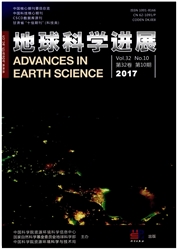

 中文摘要:
中文摘要:
海洋生态系统中的氮素生物地球化学循环主要是由微生物的代谢过程来驱动的,包括氮固定、氮同化、硝化以及反硝化和厌氧氨氧化过程,这些过程都伴随着不同程度的氮氧同位素的分馏,直接影响着海洋硝酸盐中的氮氧稳定同位素组成。因此,通过检测海洋硝酸盐中的氮氧稳定同位素信号,就可以捕捉到海洋中发生的具体氮素循环过程。细菌反硝化法是这一研究最有力的手段,通过细菌的作用把硝酸盐中记录的氮氧稳定同位素信号转化到N2O中,再通过痕量N2O的同位素质谱测定和分析,准确地反映海洋中发生的氮素转化过程。硝酸盐氮氧稳定同位素分馏过程为深入理解海洋氮循环提供了一个重要的工具,有力推动了海洋氮素生物地球化学的研究,在近10年来取得了重要进展。
 英文摘要:
英文摘要:
Nitrogen cycle in ocean is mainly driven by microbial processes,which plays important roles in the marine production and influences the global climate change.Different microbial nitrogen transformation processes,including nitrogen assimilation,nitrogen fixing,nitrification and denitrification,are all associated with different isotope effect of both the nitrogen and oxygen atoms,impacting the composition of the nitrogen and oxygen isotope of nitrate in the sea or ocean.Therefore,N-isotopic tracers can provide qualitative and quantitative information on extant processes on local scales.Bacterial denitrification method provides an important and powerful approach for this kind of study,which can transform the signal of N/O isotope in nitrate into N2O.Through investigating the composition of coupled N/O isotope in N2O,each of microbial process for nitrogen transformation can be determined exactly.
 同期刊论文项目
同期刊论文项目
 同项目期刊论文
同项目期刊论文
 Diversity, abundance, and distribution of NO-forming nitrite reductase-encoding genes in deep-sea su
Diversity, abundance, and distribution of NO-forming nitrite reductase-encoding genes in deep-sea su linking seasonal inorganic nitrogen shift to the dynimics of microbial communities in the cheaspeake
linking seasonal inorganic nitrogen shift to the dynimics of microbial communities in the cheaspeake Diversity and abundance of ammonia-oxidizing prokaryotes in sediments from the coastal Pearl River e
Diversity and abundance of ammonia-oxidizing prokaryotes in sediments from the coastal Pearl River e 期刊信息
期刊信息
